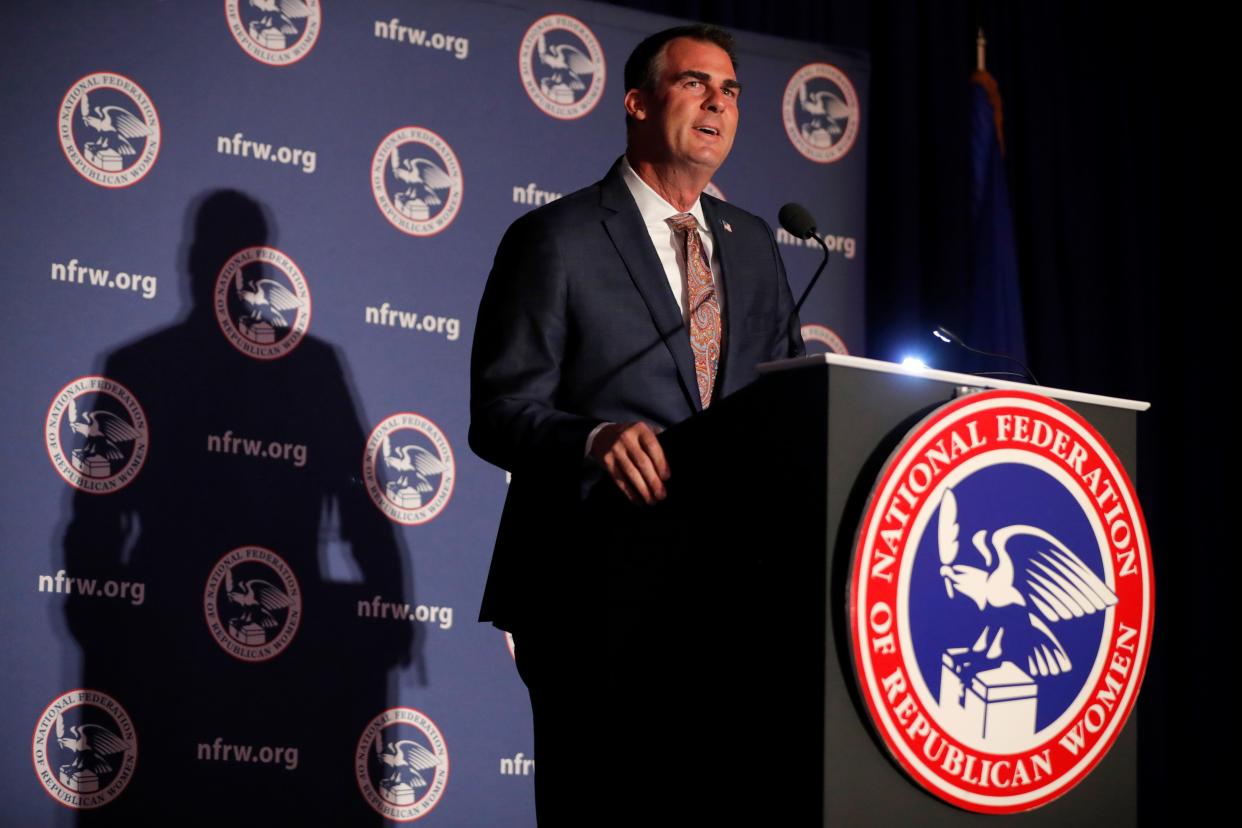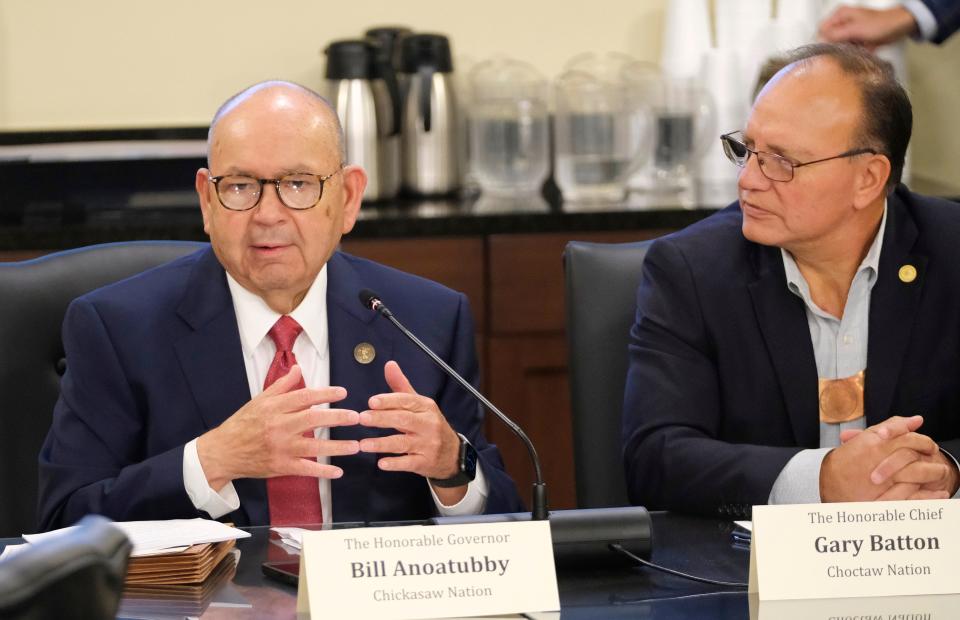Oklahoma governor, Chickasaw Nation reach tobacco tax, car tag agreement

- Oops!Something went wrong.Please try again later.
- Oops!Something went wrong.Please try again later.
Oklahoma’s governor has reached long-term agreements with the Chickasaw Nation over tobacco taxes and car tags, according to records made public Friday.
The deals are the most significant state-tribal compacts Gov. Kevin Stitt has worked out in years, and they land just weeks ahead of the state legislative session, where tribal relations could be a hot-button issue.
More: Vetoes, lawsuits and fake memes: Oklahoma Gov. Kevin Stitt’s year working with tribes
Stitt has insisted only he has the power to sign off on agreements with tribes, going so far as suing top lawmakers last year to derail the one-year compact renewals that were approved by the Legislature. The Oklahoma Supreme Court has yet to rule in the case.
Tobacco taxes and car tags are at the center of that legal dispute, as well as the compacts signed earlier this month by Stitt and Bill Anoatubby, the governor of the Chickasaw Nation. Stitt approved the agreements Jan. 11, and Anoatubby signed on the next day.

Neither Stitt nor Anoatubby have publicly talked about the deals or returned messages for comment left late Friday with their representatives.
The terms of the new tobacco compact indicate the governor’s office and the southern Oklahoma tribe both secured top-line priorities. Stitt had wanted to limit new compacts to specific types of tribal land, instead of entire tribal reservations. Anoatubby had repeatedly advocated for a stable regulatory environment.
The final deal will last for 10 years and cover only the types of land Stitt had wanted. Another key term was unchanged: both agreed to split tax revenue from tobacco products sold by the tribe.
The new license plate agreement also will run through 2034.
Anoatubby had previously supported the legislature’s move to extend existing compacts for one year over Stitt’s objections. Lawmakers indicated last fall that they may consider longer-term deals if the governor failed to reach agreements with tribal officials.
It’s unclear how many other tribal governments might be working out similar agreements with Stitt.
The new compacts don’t appear to indicate Stitt’s relations with tribal governments are improving more broadly.
Two days before signing on to the new compacts, Anoatubby joined other tribal leaders to denounce a task force Stitt had formed to examine “broken” criminal justice systems on tribal reservations. They said they wanted no part in the group.
Editor's note: This is a developing story and will be updated.
This article originally appeared on Oklahoman: Oklahoma governor signs major compact with tribe, records show

